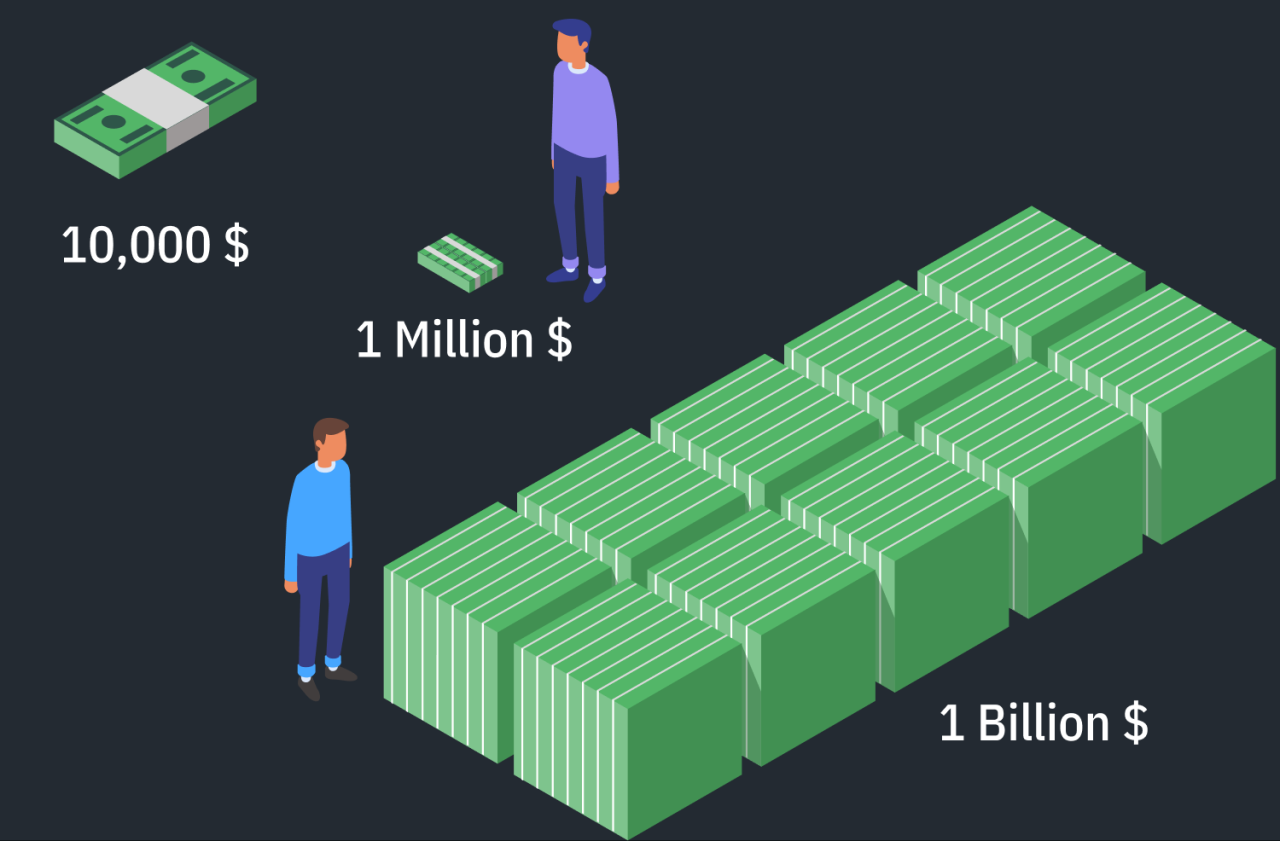How much is 1 billion won? This intriguing question invites us on a journey to explore the intricacies of South Korea’s currency, the won, and its fascinating interplay with global economic forces. Join us as we delve into the realm of currency conversion, purchasing power parity, and economic factors that shape the value of the won.
From the bustling streets of Seoul to the international financial markets, the won’s value reverberates through countless transactions, investments, and everyday lives. Understanding its dynamics empowers us to navigate the complexities of global commerce and make informed financial decisions.
Purchasing Power Parity
Purchasing power parity (PPP) is a theory in economics that states that the exchange rate between two currencies should be equal to the ratio of the prices of a basket of goods and services in each country. This means that the cost of living should be the same in all countries when converted to a common currency using the PPP exchange rate.
The PPP exchange rate is often used to compare the cost of living in different countries. For example, according to the PPP exchange rate, 1 US dollar is equal to 1,110 South Korean won. This means that the cost of living in South Korea is about 10% lower than in the United States.
Cost of Living in South Korea
The cost of living in South Korea varies depending on the city and the lifestyle of the individual. However, in general, the cost of living in South Korea is lower than in most developed countries.
- Rent: The average rent for a one-bedroom apartment in Seoul is about 500,000 won per month. This is about half the cost of rent in New York City.
- Food: The cost of food in South Korea is also relatively low. A meal at a mid-range restaurant costs about 10,000 won. This is about half the cost of a meal at a similar restaurant in the United States.
- Transportation: The cost of transportation in South Korea is also very reasonable. A monthly subway pass in Seoul costs about 50,000 won. This is about one-third the cost of a monthly subway pass in New York City.
Overall, the cost of living in South Korea is lower than in most developed countries. This makes South Korea a relatively affordable place to live.
Economic Factors
The value of the won is influenced by a variety of economic factors, including inflation, interest rates, and trade.
Inflation is the rate at which prices for goods and services are rising. When inflation is high, the value of the won decreases because each won can buy fewer goods and services. Interest rates are the rates charged on loans.
When interest rates are high, the value of the won increases because investors are more likely to invest in the won, which increases demand for the currency.
Trade, How much is 1 billion won
Trade is the exchange of goods and services between countries. When a country exports more goods and services than it imports, the value of its currency increases. This is because there is more demand for the currency from foreign buyers who need to purchase the country’s goods and services.
Investment Implications
The value of the won has significant implications for foreign investors. Currency fluctuations can impact investment returns, both positively and negatively.
For example, if the won appreciates against the investor’s home currency, the investor will receive a higher return on their investment when they convert it back to their home currency. Conversely, if the won depreciates, the investor will receive a lower return.
Currency Risk
Currency risk is the risk that the value of an investment will change due to fluctuations in the exchange rate between the investor’s home currency and the currency of the investment.
Investors can mitigate currency risk by investing in a diversified portfolio of assets that are denominated in different currencies.
Historical Perspective
The South Korean won has undergone significant fluctuations in value over the past several decades. Several key events have played a role in shaping its trajectory.
Economic Crises
The won experienced sharp devaluations during the Asian financial crisis in 1997 and the global financial crisis in 2008. These crises led to a loss of confidence in the South Korean economy and a sell-off of the won.
Government Policies
Government policies have also influenced the value of the won. The South Korean government has intervened in the foreign exchange market at times to stabilize the currency. In recent years, the government has pursued a policy of gradual won appreciation to promote exports.
Global Economic Conditions
Global economic conditions have also had an impact on the won. The strength of the US dollar, in particular, has influenced the value of the won. A stronger US dollar tends to lead to a weaker won.
Forecast and Analysis
The future value of the won is difficult to predict with certainty, but several factors may influence its trajectory. South Korea’s economic growth, inflation rate, and interest rate decisions will all play a role in determining the value of the won against other currencies.
Economic Growth
South Korea’s economic growth is expected to remain strong in the coming years, driven by exports and domestic demand. This growth will likely support the value of the won. However, if economic growth slows down, it could lead to a depreciation of the won.
Inflation Rate
The inflation rate in South Korea is relatively low, but it has been rising in recent months. If inflation continues to rise, it could lead to a depreciation of the won. This is because higher inflation erodes the purchasing power of the won, making it less attractive to foreign investors.
Interest Rate Decisions
The Bank of Korea (BOK) sets interest rates in South Korea. If the BOK raises interest rates, it will make the won more attractive to foreign investors, leading to an appreciation of the won. However, if the BOK lowers interest rates, it will make the won less attractive to foreign investors, leading to a depreciation of the won.
Risks and Opportunities
There are both risks and opportunities associated with investing in the won.
Risks
* The value of the won could depreciate if South Korea’s economic growth slows down.
- The value of the won could depreciate if inflation continues to rise.
- The value of the won could depreciate if the BOK lowers interest rates.
Opportunities
* The value of the won could appreciate if South Korea’s economic growth remains strong.
- The value of the won could appreciate if inflation remains low.
- The value of the won could appreciate if the BOK raises interest rates.
Summary
In the tapestry of global currencies, the South Korean won stands as a testament to the nation’s economic prowess and its interconnectedness with the world. Its value, shaped by a myriad of factors, continues to evolve, presenting both opportunities and challenges for investors, businesses, and individuals alike.
As we look to the future, the won’s trajectory remains a captivating subject, promising to unveil new insights into the ever-changing landscape of international finance.
Quick FAQs: How Much Is 1 Billion Won
What is the current exchange rate between the South Korean won and the US dollar?
As of today, 1 South Korean won is approximately equal to 0.0008 US dollars.
How does purchasing power parity affect the value of the won?
Purchasing power parity suggests that the exchange rate between two currencies should reflect the cost of living in each country. If the cost of living in South Korea is higher than in the United States, then the won should be worth less than the dollar.
What economic factors influence the value of the won?
Economic factors such as inflation, interest rates, and trade can all affect the value of the won. For example, if inflation is high in South Korea, then the won may lose value against other currencies.


